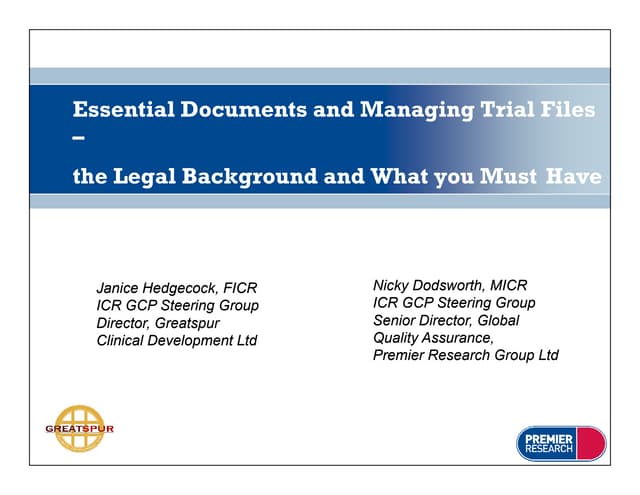5 Essential Documents for Home Buying

Stepping into the world of home buying can be both exhilarating and overwhelming. Navigating through the process involves a series of steps, each requiring specific documentation to ensure a smooth transaction. Understanding what documents are needed not only streamlines the process but also equips you with the knowledge to handle the complexities of real estate transactions. Here's a comprehensive guide to the five essential documents every prospective homebuyer should have on hand.
1. Proof of Income

Before any mortgage lender considers approving your loan, they need to ensure you have the financial capability to repay it. Proof of income is vital in this regard:
- Recent Pay Stubs - These show your current earnings and employment.
- W-2 Statements - These demonstrate your income over the past year(s).
- Tax Returns - Typically, lenders ask for the last two years’ federal tax returns to verify your income consistency.
- Bank Statements - These could be used to show proof of deposits or additional income sources.
💡 Note: If self-employed or having irregular income, prepare additional documents like profit and loss statements or a year-to-date balance sheet.
2. Credit Report and Score

Your creditworthiness plays a pivotal role in securing a home loan:
- Request a free annual credit report from all three major bureaus.
- Check for discrepancies or potential fraud.
- Understand your FICO score as this heavily influences mortgage rates and loan approval.
🔐 Note: Disputing errors on your credit report can improve your score and loan terms if resolved before you apply.
3. Loan Pre-approval Letter

A loan pre-approval letter shows sellers that you are a serious buyer. It includes:
- The loan amount you qualify for
- The interest rate
- The length of the loan
- Any conditions associated with the pre-approval
To get pre-approved:
- Fill out the mortgage application
- Submit income and asset documentation
- Authorize a credit check
🏦 Note: Pre-approval is not a guarantee; your final loan approval depends on factors like the property appraisal.
4. Sales Contract

Once you’ve found your home, you’ll need to draft a sales contract or purchase agreement. This document:
- Contains legal descriptions of the property
- Specifies the agreed-upon price
- Details any inclusions (appliances, furniture)
- Outlines contingencies (financing, home inspection, sale of your current home, etc.)
Commonly, this contract is drawn up by the real estate agent or an attorney, but buyers should carefully review every detail.
🔍 Note: Pay special attention to closing costs and escrow fees. Ask for clarification if you’re unsure.
5. Home Inspection Report

Prior to finalizing the purchase, a home inspection is crucial:
- Inspects the property’s physical condition
- Identifies potential problems
- Gives you leverage to negotiate repairs or price adjustments
| Inspection Type | Why It’s Important |
|---|---|
| Structural Inspection | Checks for foundation stability, structural integrity. |
| Electrical Systems | Ensures safety and efficiency of the home’s electrical systems. |
| Plumbing | Looks for leaks, water damage, and proper function of all plumbing fixtures. |
| Roof | Assesses the roof condition to predict its remaining life and need for repairs. |
| Pest and Termite | Detects current or past pest infestations. |

🧐 Note: Consider hiring a professional with additional certifications for a more thorough inspection.
In closing, buying a home is a journey that requires meticulous preparation. By having these five essential documents ready, you're setting the stage for a successful home purchase. Not only do these documents safeguard your interests, but they also provide a roadmap for navigating the often complex world of real estate transactions. With the right paperwork, you're not just buying a property; you're securing a piece of your future.
What if my income sources are not traditional?

+
If you have income from freelance work, investments, or other non-standard sources, be prepared to provide detailed documentation like contracts, bank statements showing deposits, and letters from clients or financial advisors.
Can I still buy a home with a low credit score?

+
Yes, but you might face higher interest rates or less favorable loan terms. Look into FHA loans, which are more lenient regarding credit scores. Also, working on improving your credit score before applying can save you money in the long run.
What happens if my home inspection reveals significant issues?

+
You can use the inspection report to negotiate repairs with the seller. If issues are major, you might request a price reduction, have the seller fix the problems before closing, or, in extreme cases, back out of the sale if the contract allows.
Do I need a pre-approval to start looking at homes?

+
It’s not mandatory, but having a pre-approval letter gives you a competitive edge in the housing market. It shows sellers that you are a serious buyer and can potentially speed up the process once you find a home you like.
What if I have outstanding debts when applying for a mortgage?

+
Mortgage lenders will consider your debt-to-income ratio (DTI) when approving your loan. Reducing existing debts before applying can help lower your DTI, increasing your chances of loan approval and possibly securing better rates.